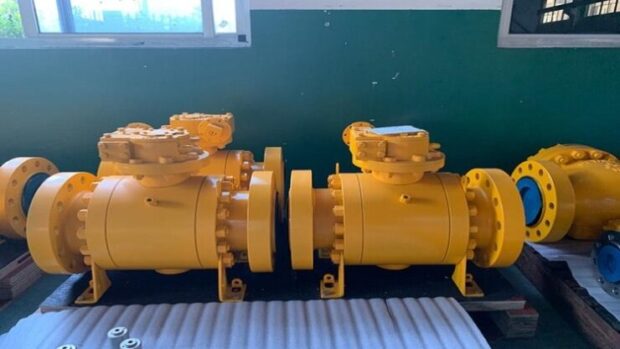Ball valves are essential components in many industrial applications, providing reliable and efficient control of fluids and gases. A ball valve consists of a spherical ball situated inside a valve body with a hole in the center. The ball is operated by a lever, which turns it to allow or block the fluid flow. These valves offer several advantages over other types of valves, including quick and easy operation, excellent shutoff capabilities, and low maintenance costs.

There are several types of ball valves available in the market, and it is essential to choose the right one for your application. Each type of valve has unique features and benefits, and selecting the appropriate valve can significantly affect the operation and efficiency of your system.
Forged Ball Valves
Forged ball valves are excellent choices for high-pressure applications. These valves are made from high-quality materials such as carbon steel, stainless steel, and alloy steel. Forged ball valves are incredibly durable and can withstand extreme temperatures and pressures. They are also resistant to wear and tear, which ensures long-term durability and reliability.
Metal to Metal Ball Valves
Metal to metal ball valves provide superior sealing capabilities and are ideal for applications that require high temperatures, high pressures, or both. The metal to metal design ensures a tight seal that can withstand extreme operating conditions. These valves are also suitable for applications that involve abrasive fluids, which may cause damage to other types of valves.
Top Entry Ball Valves
Top entry ball valves are easy to maintain and repair, making them a popular choice in applications that require frequent maintenance. The top-entry design provides easy access to the valve internals, without removing the valve from the pipeline. This feature significantly reduces downtime and saves considerable costs associated with valve replacement.
Alloy Valves
Alloy valves are ideal for applications that require high performance and are subject to harsh operating conditions. These valves are made from different alloys, including nickel alloy, titanium, and Hastelloy. Due to their resistance to corrosion, high temperatures, and pressure, alloy valves provide long-term durability and reliable performance.
Trunnion Mounted Ball Valves
Trunnion mounted ball valves are engineered to withstand high temperatures and pressures, making them a popular choice for demanding industrial applications. These valves provide reliable operation and excellent shutoff capabilities, ensuring the safe and efficient operation of your system. Trunnion mounted ball valves are also easy to operate and require minimal maintenance.
Microfinish Ball Valve
A microfinish ball valve is a type of ball valve that has extremely smooth surfaces, which ensures excellent sealing and low torque requirements. The smooth surfaces of a microfinish ball valve eliminate the need for much lubrication, making it ideal for applications that require low friction and minimal maintenance.
In conclusion, selecting the right ball valve for your application is crucial for ensuring reliable and efficient operation of your industrial processes. The above-discussed ball valve types provide unique advantages and benefits that can significantly enhance the performance and durability of your system. Contact a reputable supplier to help you choose the right ball valve for your application.